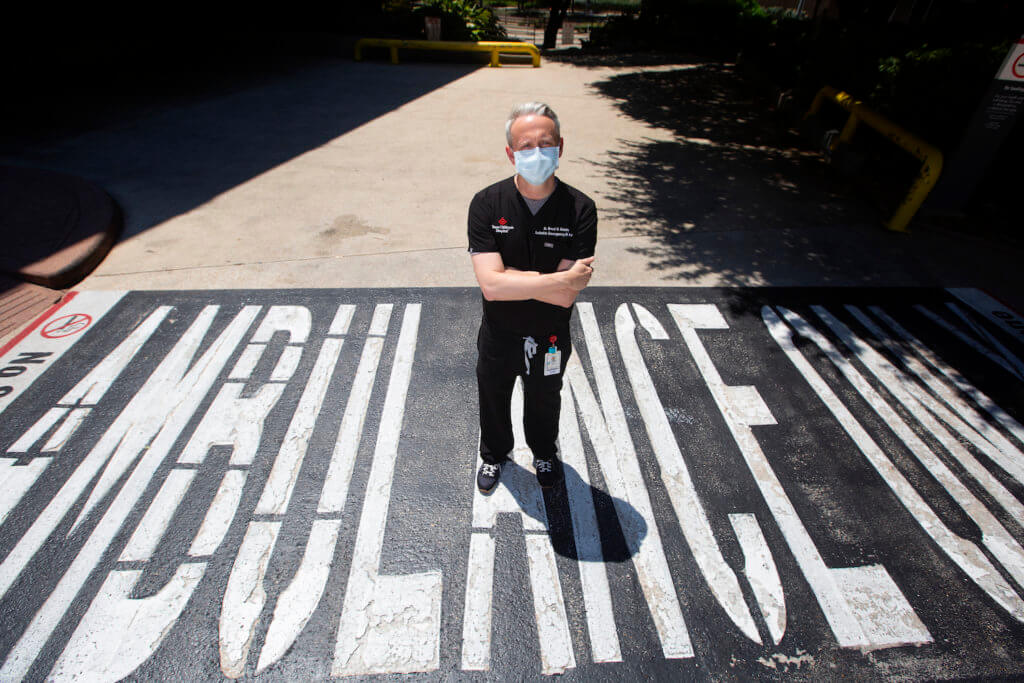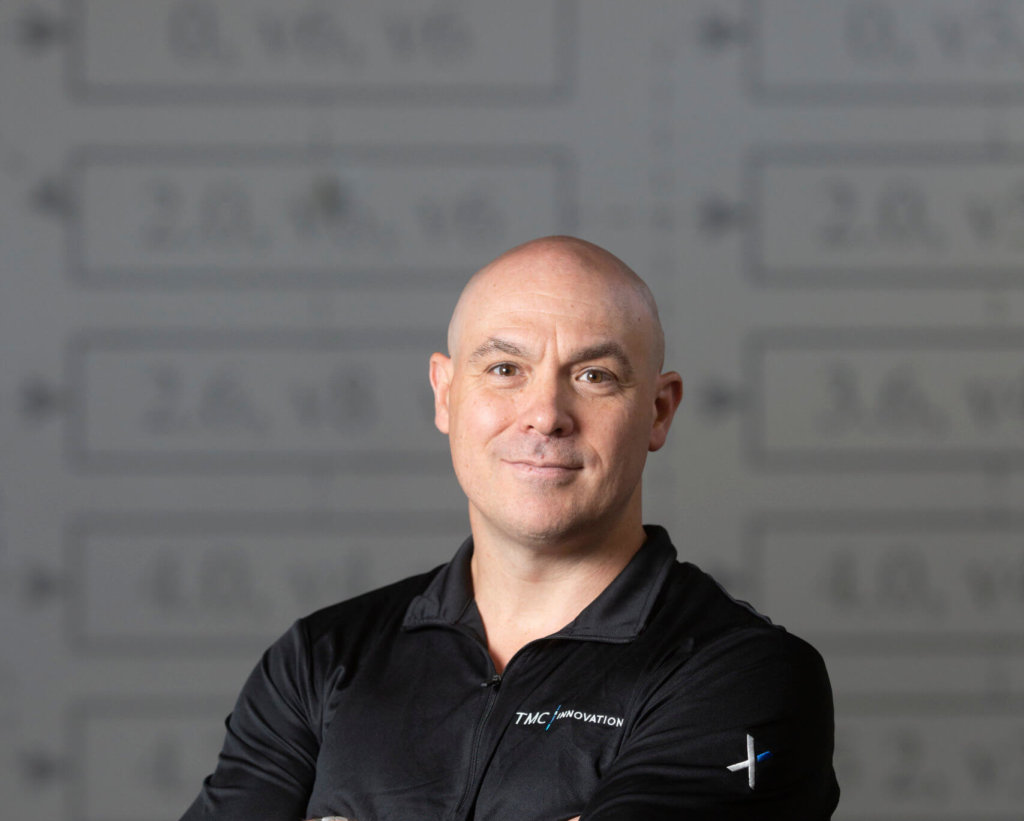Adults with intellectual disabilities find new opportunities for health care

Allison Rosenberg has been living independently since 2011. As an adult with mild cerebral palsy, the 27-year-old requires regular medical care from a team of providers.
Like one in every two individuals diagnosed with cerebral palsy—which affects a person’s ability to move and maintain balance—Rosenberg has an intellectual disability, as well.
But accessing high-quality, affordable health care as an adult with an intellectual disability is a challenge.
Rosenberg aged out of the pediatric care and physician she grew up with when she turned 18.
“Me and my parents did research, and we wanted to find a doctor who knew about my condition and was willing to help,” Rosenberg said.
Their search led them to Baylor College of Medicine’s Transition Medicine Clinic, launched and led by Cynthia Peacock, M.D. The clinic provides care and support to young adults with intellectual disabilities living in and around Houston as they shift from pediatric to adult care.
“About 85 percent of the population of people who have intellectual disabilities have a mild level of intellectual disability,” Peacock explained. “Even though we have individuals in our clinic who have a mild intellectual disability, we tend to target the ones who are more complicated. They tend to have more health care issues as well, so they have complex care.”
Every year in the United States, more than 500,000 children with special health care needs turn 18 and transition to adult-oriented providers.
While the life expectancy of individuals aging with intellectual disabilities is increasing, it is still lower than the general population, particularly for individuals with more severe intellectual and physical disabilities and certain genetic syndromes, according to expert testimony provided to the U.S. Senate Committee on Aging.
“Most people with an intellectual disability may have a problem recognizing that they have a health care issue and they need regular check-ups—maybe even more than the regular person—just to make sure those health problems are getting recognized,” Peacock said. “Health care systems aren’t set up for taking care of people with intellectual disabilities. Is the facility wheelchair-compliant? Can the patient get onto an exam table that meets the requirements for a wheelchair? Many times they don’t get the exam they need and, depending on the severity of an individual’s disability, they may not be able to communicate with a health care provider, so they have to rely on their families or caregivers.”
Peacock also points out that people with intellectual disabilities are not dying from the same things the general population is dying from, such as heart disease and cancer.
“Their deaths aren’t related to what we normally think of,” she said. “It’s more related to infections—people not recognizing them early on to get them treated—pneumonia and death related to a seizure disorder. Providers need to realize their mortality is earlier and that the morbidity that they are dying from is different from the general population.”
Rosenberg, who sees Peacock for a regular checkup every six months, appreciates the relationship she and her doctor have built.
“My mom or my dad or both will go with me to doctor appointments, but usually my dad because he can lift me,” Rosenberg said. “I like going to Dr. Peacock’s office because they don’t always ask the person sitting next to me the questions. They ask me personally, which I like. A lot of doctors assume people with disabilities can’t vocalize so they turn to the care person that is with them. It bothers me.”
From contained to fragmented care
Some adult patients with intellectual disabilities may not know how to read signage, understand the after-visit summary or comprehend the next steps needed for further care, Peacock explained.
“Pediatric systems are contained. If you want to see a specialist in the pediatric system, you go to the children’s hospital. Once you get into adult care, it’s fragmented and you can go anywhere and establish with anybody,” she said. “The problem with somebody coming out of the pediatric health care system
with Medicaid and an intellectual disability—they are going to struggle finding new providers.”
With the exception of students studying pediatrics, medical students are not trained to work with individuals with disabilities because it is not a requirement in most schools, an issue that resonates in the dental community, as well.
“Pediatric dentists are trained to work with patients with autism and they are comfortable treating a person with autism even when they become an adult. But at a certain time, adult dental disease is quite different than treating baby teeth,” said David Fray, D.D.S., associate professor at The University of Texas Health Science Center at Houston’s School of Dentistry. “Pediatric dentists don’t feel comfortable treating gum disease and doing certain procedures like root canals and molar teeth, and general dentists are usually not trained to work with that population.”
Most children with intellectual disabilities transition well into adult dental care, Fray said, but some struggle.
“Maybe 20 to 30 percent of children in a pediatric office have trouble transitioning to adult dental care after the age of 30, and we are working to try to improve that,” he added.
Patients with autism can experience sensory overload when visiting the doctor. Having sensitivity to light, being touched or experiencing a break in their routine can present major challenges.
“Just to come at them and stick the blood pressure cuff on them, can send them into … they don’t know why they are being approached,” Peacock said. “You just need to show them what it looks like and say we are going to put this on your arm and then they are OK because they’ve seen it before.”
Building a strong doctor-patient relationship is the key to success for caring for adults with intellectual disabilities.
“We want our patients to get used to us,” Peacock said. “We might see them two or three times before we draw blood.”
Because medical and dental schools don’t offer specialties in treating adults with intellectual disabilities, these individuals fall through the cracks.
“It’s a forgotten population,” Peacock said. “Once they get out of school, if they are not employed, who is going to notice if they aren’t getting any health care?”
Fray and Peacock are working together to change that in the Texas Medical Center.
“To have an academic clinic like ours that just sees people with intellectual disabilities—they are relatively few and far between. There are maybe 20 across the country,” Peacock said. “We’re are seeing more schools incorporate training into their curriculum. In our transition clinic, we train nursing students, social work students, residents in primary care, internal medicine, fellows who are doing adolescent medicine, pediatrics, neurology. It will be interesting if we can increase longevity for these individuals by increasing screenings and access to care.”




